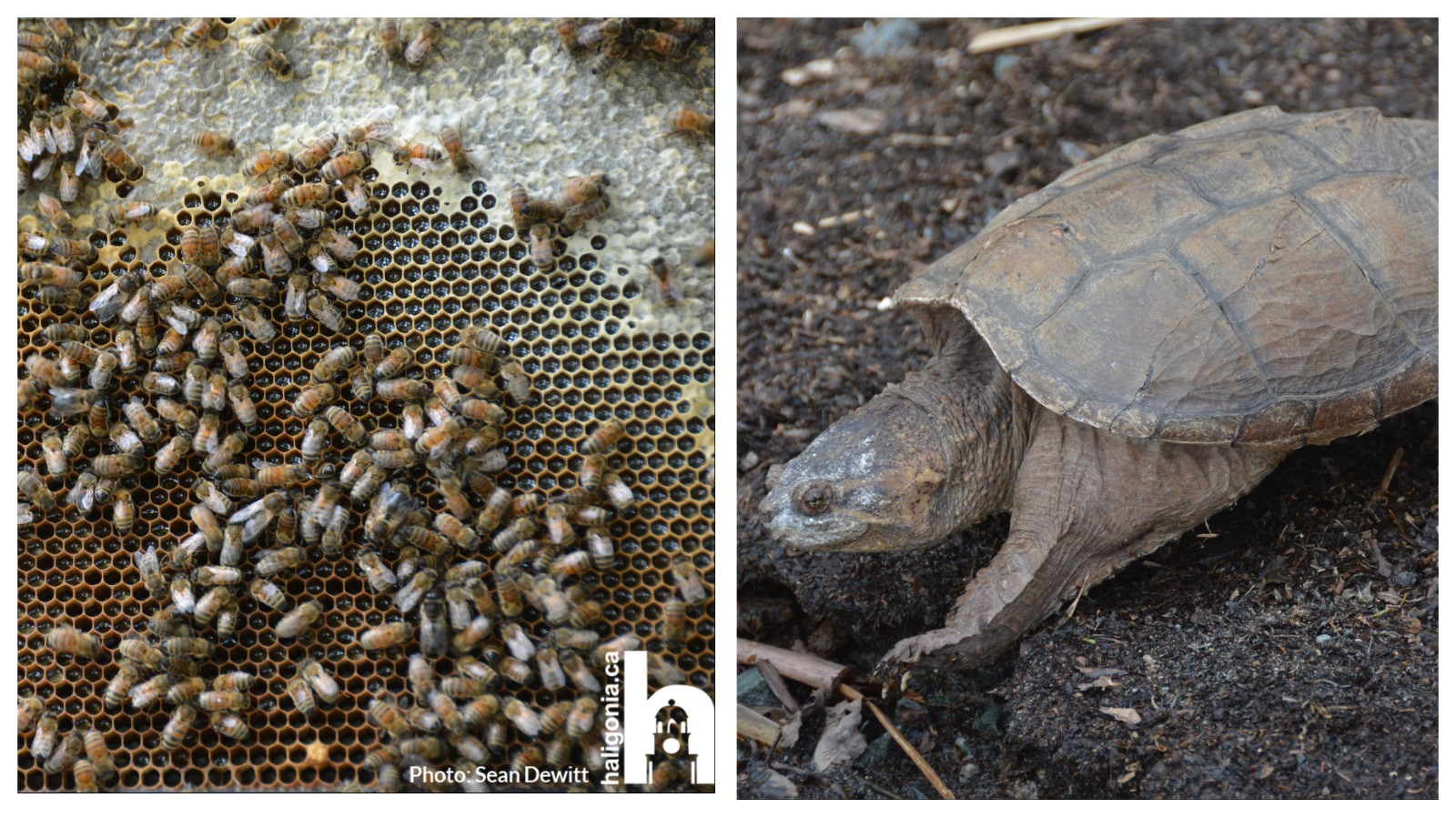CWF thanks Canadians for helping endangered species like pollinators and turtles.
The Canadian Wildlife Federation (CWF) is thanking Canadians for helping endangered species including turtles and pollinators as we approach International Day of Biodiversity May 23 and World Turtle Day May 24.
“More than 85 per cent of Canada’s fresh water turtles are at risk,” said Rick Bates, CEO of the Canadian Wildlife Federation. “The situation for pollinators like butterflies and bees is also dire. The good news is that the number of opportunities for citizens to get involved in conservation is growing.”
For those gardening over the long weekend, CWF encourages an early start in celebrating International Day of Biodiversity by creating spaces that are beneficial to insects, butterflies, birds, bees and other wildlife. Helpful tips and suggestions are available at CanadianWildlifeFederation.ca/gardening. In addition, CWF certifies gardens as wildlife-friendly and created five specially-designed bedding plant kits for pollinators. These Medallion Plants are now available for purchase at retailers across Canada. Each customized kit features a unique variety of neonic-free pollinator plants. Neonicotinoids (also known as neonics) are chemicals derived from nicotine. There are several different kinds of these products in Canada, all with harmful side effects for butterflies, earthworms, aquatic invertebrates, birds and bees. Neonics are also systemic, which means they are absorbed by plants when applied to seeds, soil or leaves. The chemicals circulate through the plant’s tissues, killing the insects that feed on them.
“It’s estimated that pollinator services contribute over a billion dollars annually to the Canadian economy,” Bates said. “In fact, without pollinators, our food supply would decline drastically. Many of our pollinators are in decline due to habitat loss and degradation, pesticide use, various agricultural practices, disease, climate change and introduced species. It’s time to spring into action to protect these endangered species.”
Canadians can celebrate World Turtle Day by visiting HelptheTurtles.ca to get tips for living and travelling around nesting sites. The site features a new video that shows how to properly help turtles cross roads. Freshwater turtles are one of the most endangered groups of animals in Canada with road mortality one of the main issues. CWF has been working with regional partners, community groups, lake associations and individuals to reduce risks to turtles. In the Ottawa area, CWF surveys private lands to document at risk turtle locations and their habitat. CWF also analyses hotspots where turtles are more susceptible to being hit on the road. CWF works with partners to outfit turtles with radio transmitters to track movement, habitat use, nesting sites and overwintering sites. To raise awareness and funds, Oat & Mill non-dairy ice cream is donating a portion of sales from its Turtle Crossing frozen oats to CWF conservation efforts. Canada’s Sea turtles are also at risk, with entanglement and pollution among additional problems which the public can address by reducing their use of straws and other frivolous plastics. CWF has been advocating for stronger sustainable packaging legislation and has received tremendous public support for its petition to #stopsingleuse.
To learn more, visit CanadianWildlifeFederation.ca.
About the Canadian Wildlife Federation:
The Canadian Wildlife Federation is dedicated to fostering awareness and appreciation of our natural world. By spreading knowledge of human impacts on the environment, conducting research, taking action to conserve habitat and wildlife, recommending legislative and policy changes, and co-operating with like-minded partners, CWF encourages a future in which Canadians can live in harmony with nature. Visit CanadianWildlifeFederation.ca for more information.
.
Source: Media Release

